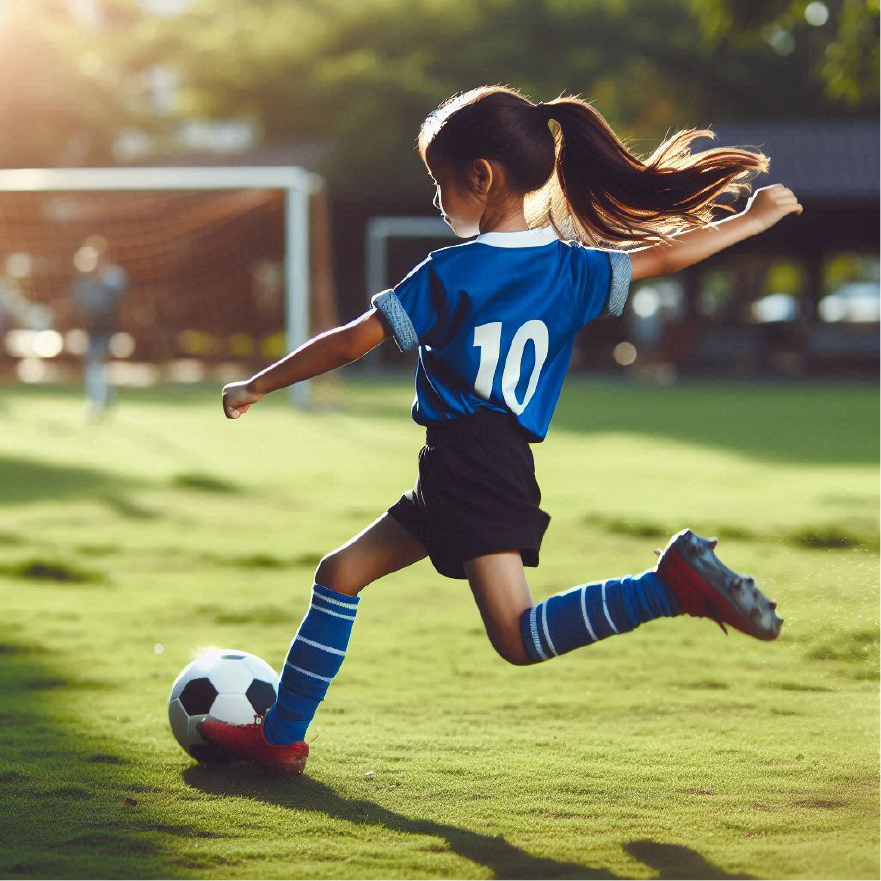By: Lila Samadani, high school sophomore
Understanding concussions in kids
It’s a fact of life: kids fall down, bump their heads, and sometimes get hurt playing sports. Concussions seem to be inevitable and “Compared with college and professional athletes, adolescents appear more vulnerable to concussion and take longer to recover due to neurological immaturity”, according to an 2020 article from the British Journal of Sports Medicine. But a question to ask is what do they really know about concussions? In an informal survey conducted with 30 kids aged seven to 16, 40% reported having experienced a concussion, with several having suffered multiple. These numbers show the importance of understanding this common yet often misunderstood injury.
What do kids think a concussion is and why is this a problem?
While most kids have heard the word “concussion,” many don’t understand what qualifies as a concussion or fully grasp its implications. In our survey, the majority of respondents answered “yes” to the question “Do you know what a concussion is?”. When asked to define a concussion, many kids provided a range of answers, some more accurate than others. But like many adults, kids’ responses suggest they do not fully understand this potentially serious injury or when and how it should be treated. This lack of understanding is potentially dangerous, especially for the individuals who play sports, as they are highly susceptible to
concussion.
What happened to the kids in our survey when they got injured?
The survey also revealed a concerning trend: Some athletes who experienced multiple concussions admitted to continuing to play even after being injured, increasing the risk of further hurting themselves. This highlights the importance of educating children about concussions, including what a concussion is, recognizing its symptoms, and the importance of care and rest for an effective recovery.
Concussion awareness can help reduce long-term concussion effects
Concussions can have long-lasting consequences if not treated properly, especially in young developing brains. That’s another reason why concussion education is important, as it empowers kids to advocate for their own health and well-being, especially in those cases where adults might not recognize a head injury. Increased understanding can help reduce long-term problems.
How to teach kids how to recognize and respond to a potential concussion
If you think you or someone you’re with might have a concussion, here’s a four step process to share with kids to help them respond effectively:
- Assess the situation: Take a moment to understand what happened and
how you are feeling. Are you dizzy, confused, or in pain? Try to recall the
events leading up to the injury and note any symptoms you are
experiencing. - Tell an adult: This is the most important step. Don’t try to tough it out. Tell
your parents, your coach, or any adult you trust. They can help you figure
out what to do next. - Get checked out. Go to the emergency room right away or see your
doctor as soon as possible. They will be able to assess your situation and
recommend the best course of action. - Rest up. Even if your symptoms seem mild, it’s important to rest and avoid
activities that require a lot of concentration. That means no schoolwork, no
video games, and definitely no sports. Let your brain heal!
If you neglect a concussion and continue to return to activity, mild symptoms can worsen and lead to long term issues like memory loss, balance, sleep, mood and possibly worse.
The Bottom Line
Concussions are serious and deserve attention. And by increasing awareness and education for kids, we can help the next generation protect their brains and make educated decisions about their health. And remember, when it comes to head injuries, it’s always better to be safe than sorry.
